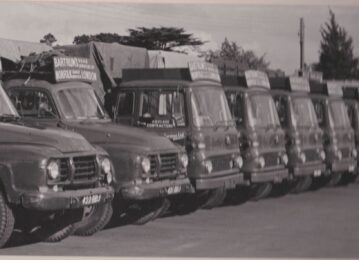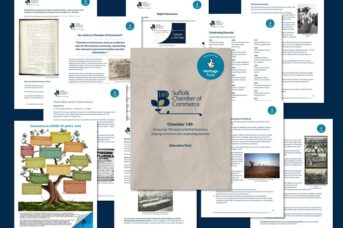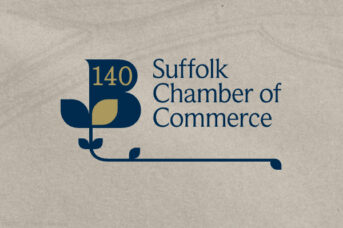In January 2024, the Bartrums family sat down with the C140 project team, shedding light on the rich history and evolution of their family-owned haulage business, Bartrums.
Humble Beginnings:
From Horse and Cart to Haulage Fleet
Leonard Bartrum, founder of Bartrums, was one of eight children born into a family of farm labourers. At the age of just 14, Leonard left school and started work delivering groceries in Diss, Norfolk.
In the late 1910s, he used a horse-drawn cart to deliver paraffin, before transitioning to lorry driving in the early 1920s.
In February 1929, Leonard’s employer offered him the chance to buy into the haulage industry. Leonard invested his savings – which had been set aside to purchase his first home – into buying his first lorry.
The foundation for Bartrums was laid, and Leonard’s dedication and foresight quickly grew the operation from a single vehicle into a flourishing fleet.
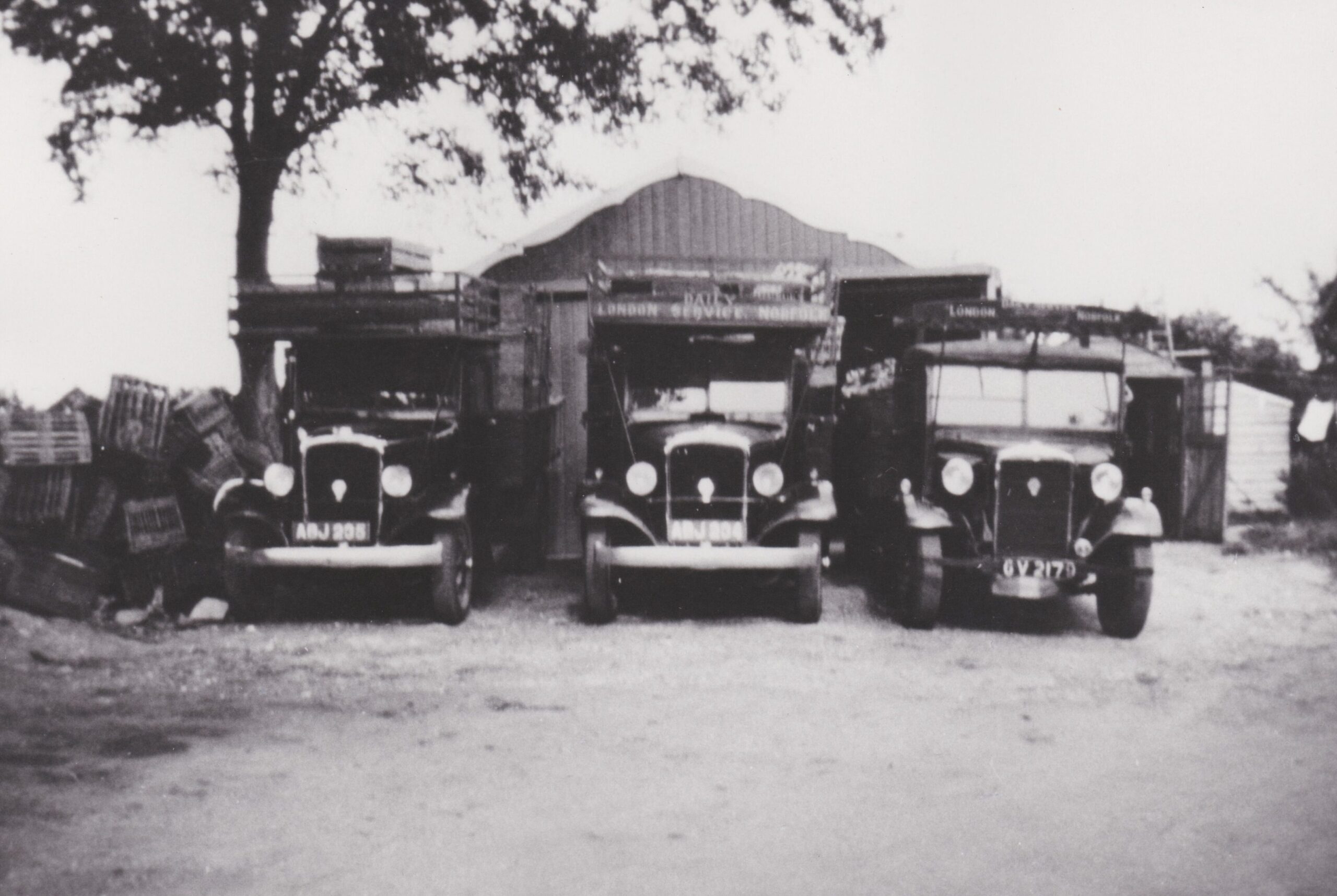
© Bartrums Group
War Efforts and Post-War Rebuilding
During World War II, many of Bartrums’ vehicles were commandeered by the army to aid the war effort.
Permitted to keep a few vehicles, Bartrums carried out crucial work, transporting poultry and vegetables from East Anglia to London to alleviate wartime food shortages.
Bartrums also contributed to building military airfields in Norfolk and Suffolk, delivering essential materials like cement and sand. Remarkable for the time, the company even employed a few female drivers to assist with these deliveries, driving tipper lorries to support the supply of materials.
Their vehicles were even used to transport prisoners of war in East Anglia from the camps where they were interned, to the farms on which they were used as labour.
The post-war period for Bartrums brought many challenges. One of these challenges was the nationalisation of the haulage industry, following the Transport Act of 1947. Leonard managed the company’s depot under the British Road Services until 1954, when the business was denationalised. Despite facing bankruptcy, Leonard regained control and began work to revitalise the company.
A Family Affair:
Growing Through Generations
Soon after the war, Leonard’s sons – Philip, Roger, and Roy – joined the family business, starting as lorry drivers’ mates before moving into driving and eventually administrative and management roles.
Their hands-on experience and commitment helped Bartrums build a reputation for excellent service, securing long-term contracts with companies like Boots the Chemist (1967–2004) and Guinness (1954–2004).
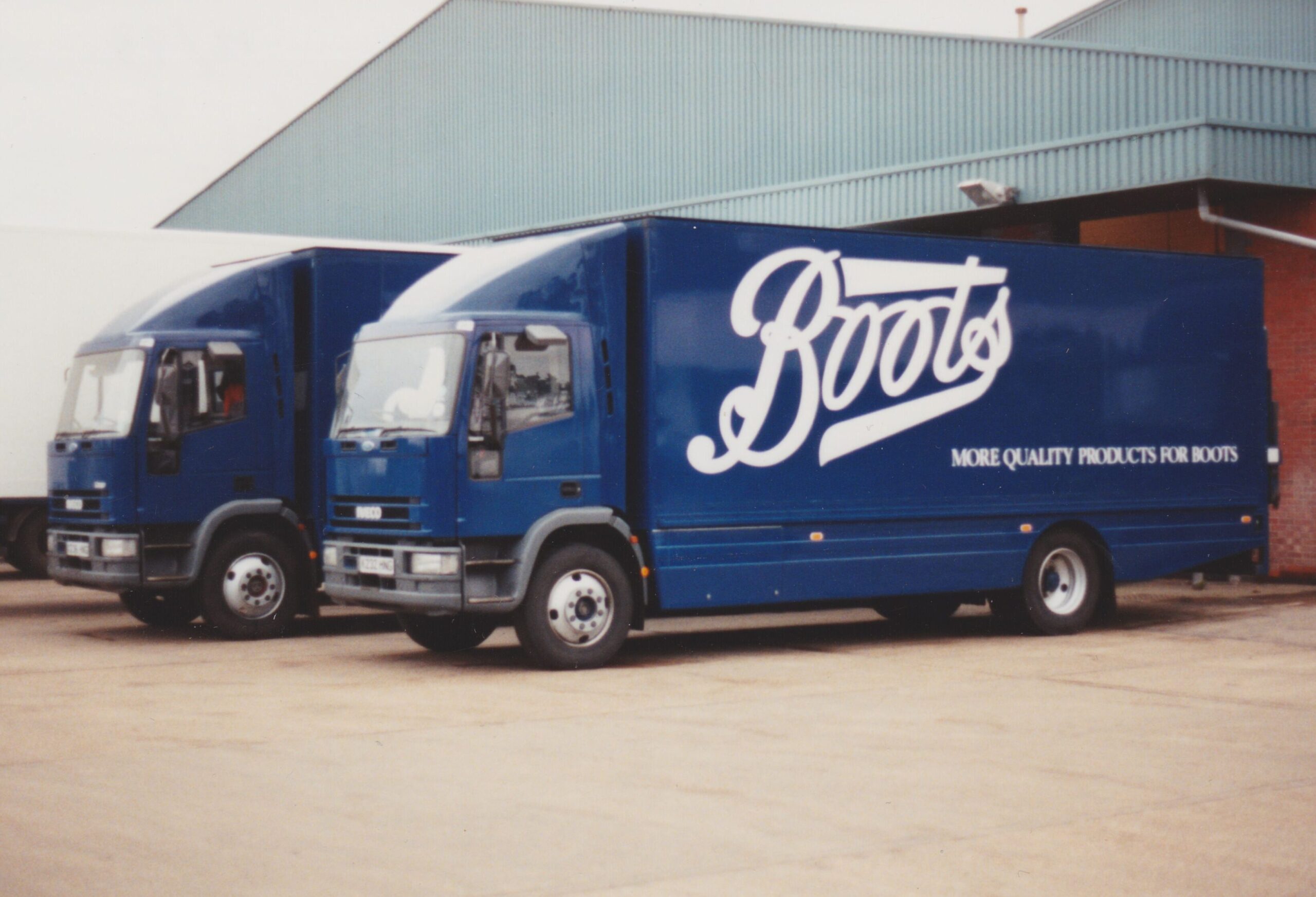
© Bartrums Group
The business, originally based in Diss, Norfolk, gradually moved to Eye, Suffolk, as part of a strategic expansion.
Innovations and Adaptations
Bartrums has consistently been at the forefront of technological advancements in the haulage industry, implementing features like tachographs long before they became standard practice.
Since its early days, the company’s fleet has evolved significantly.
Their first vehicles were two-tonne lorries; today, their vehicles are capable of carrying up to 44 tonnes – roughly the weight of hauling 20 cars! Since the 1960s, haulage capacity has doubled from 24 tonnes, showing the huge progress of the haulage industry over the last fifty years.
A notable example of the Bartrums’ commitment to innovation was in 1992, when they transported a record-breaking 120-foot-long load for Stramit. The load was made up of long steel roofing sheets, pictured below. Thought to be the longest load ever carried by road in the UK, the operation involved specially adapted vehicles designed for the task, with front and rear steering.
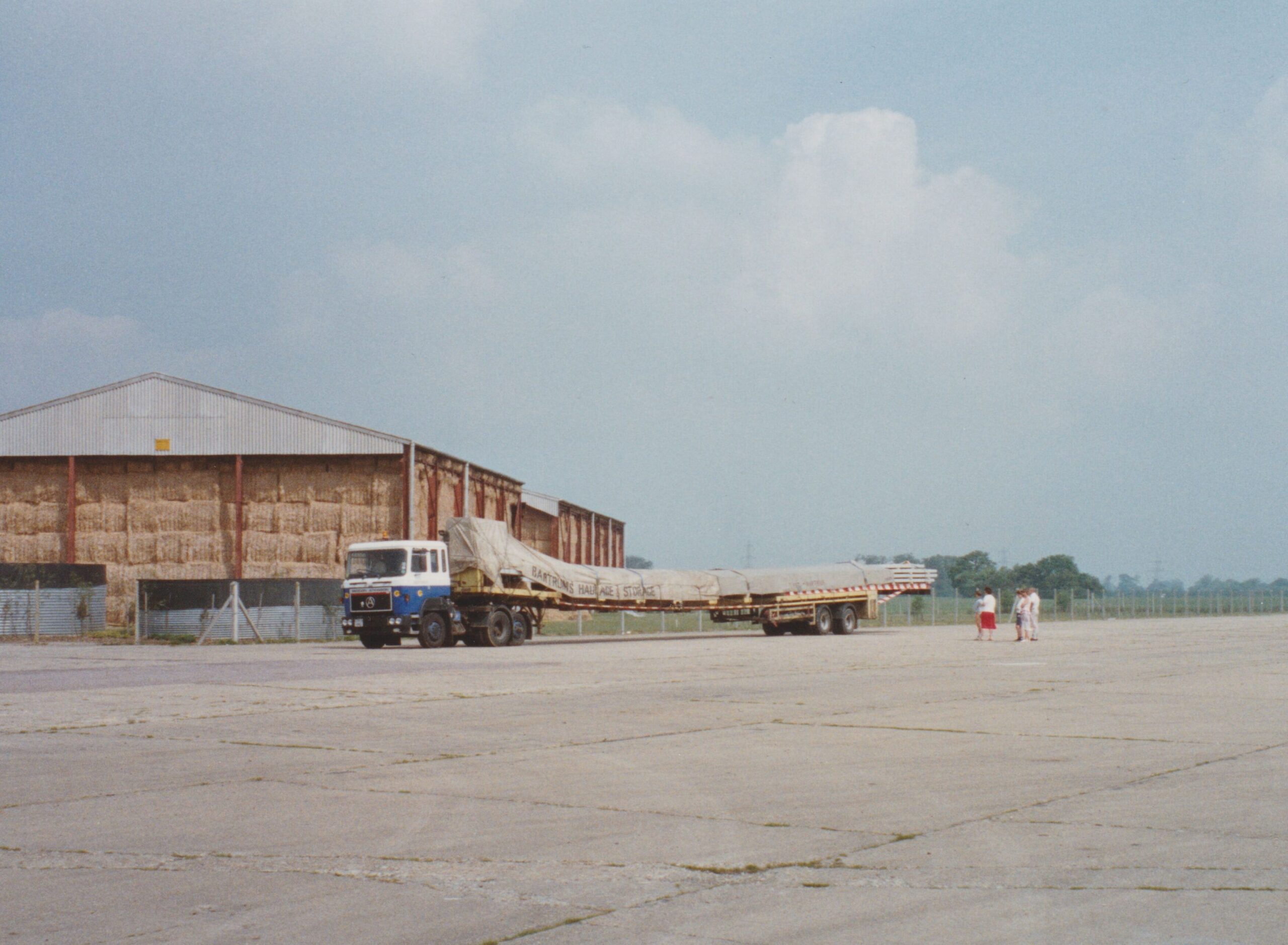
© Bartrums Group
The company’s history is marked by its diverse range of cargoes, including animal feed, eggs, vegetables, and even poultry to London markets.
One particularly memorable operation involved transporting locally reared turkeys to London for Christmas. At the peak of demand, Bartrums would transport up to 10 loads a night!
Bulk Haulage Pioneers
Bartrums was a pioneer in bulk haulage in the mid-twentieth century, specifically in transporting malt for the brewing industry.
In 1958, Bartrums first began transporting goods in bulk following a contract with Guinness. This shift from bagged to bulk transport required innovative adaptations to their vehicles.
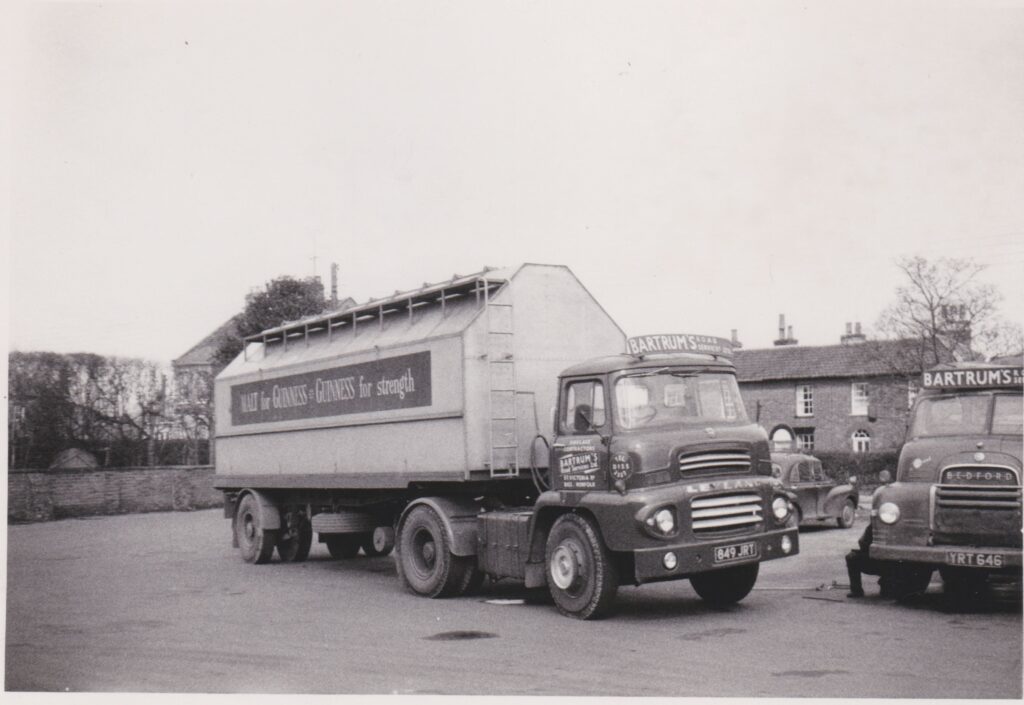
© Bartrums Group
The lorries were designed to hold up to 15 tonnes of loose malt, with the vehicles stripped down to reduce weight and maximise their haulage capacity.
For the first deliveries to the Guinness brewery in London, the trailers were secured to platforms that could tip the malt off, avoiding the need for heavier tipping machinery on the lorries themselves.
The bulk haulage of malt remains a primary focus for Bartrums, who are well-positioned in Suffolk to transport East Anglia’s plentiful barley harvest.
Local Focus and Continued Legacy
Today, Bartrums remains committed to serving local businesses across East Anglia.
The company continues to work with longstanding clients, amongst them some of the Suffolk Chamber’s members, including Greene King, Muntons, Boortmalt, and Aspall Cyder. This focus on local business, coupled with a strong family legacy, underpins their operations.
Two of Leonard’s grandchildren, Robert and Shaun Bartrum, are now Managing Directors of the company, continuing the family’s legacy in the haulage industry. Through nearly a century of operations, Bartrums has evolved from a single lorry operation into a significant player in the UK haulage industry.
Their story is a testament to enduring values of hard work, innovation, and family legacy.
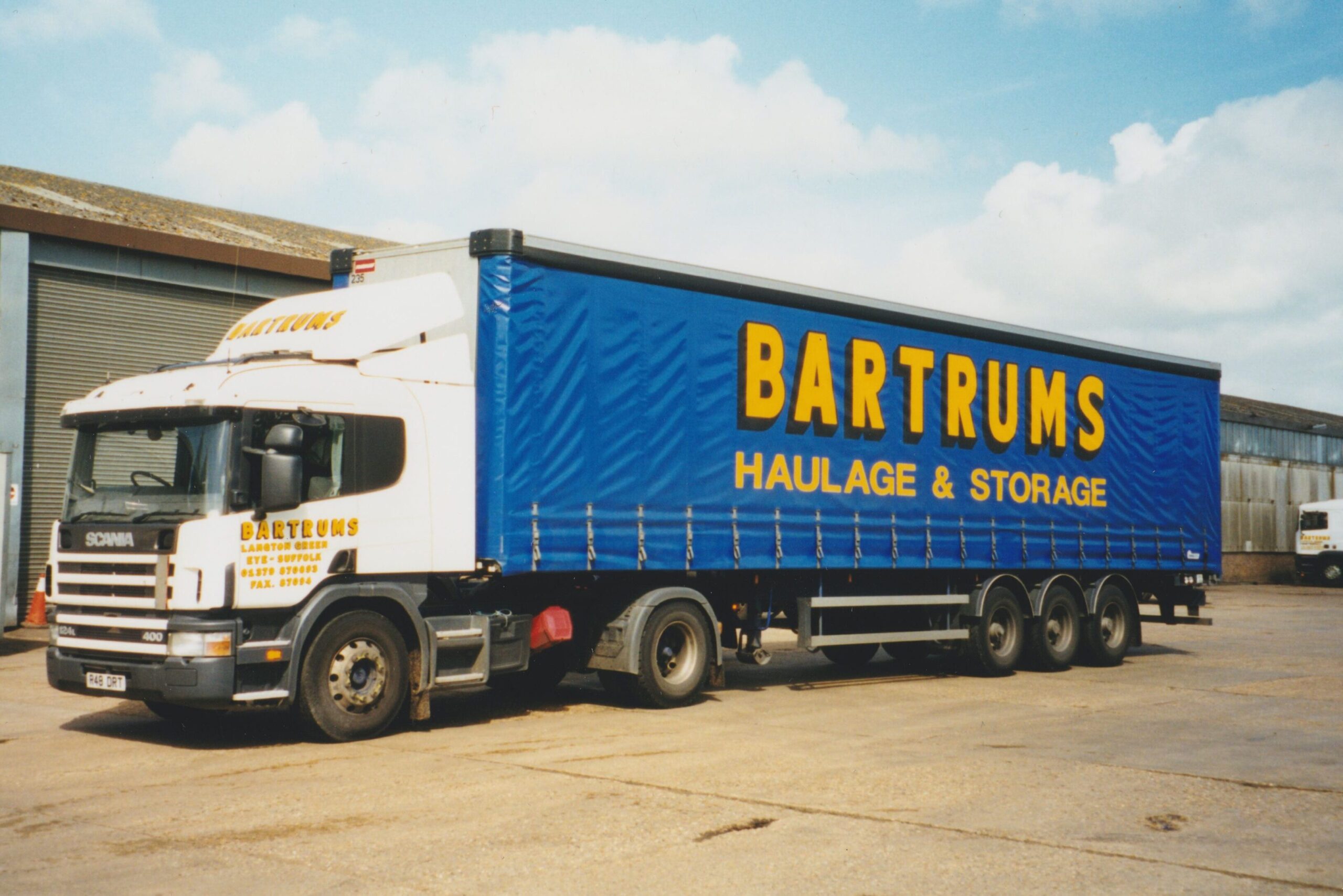
With thanks to Philip, Roger, and Roy Bartrum for sharing their family’s fascinating history with the Suffolk Chamber’s C140 project—honouring 140 years, shaping tomorrow, and celebrating diversity.
